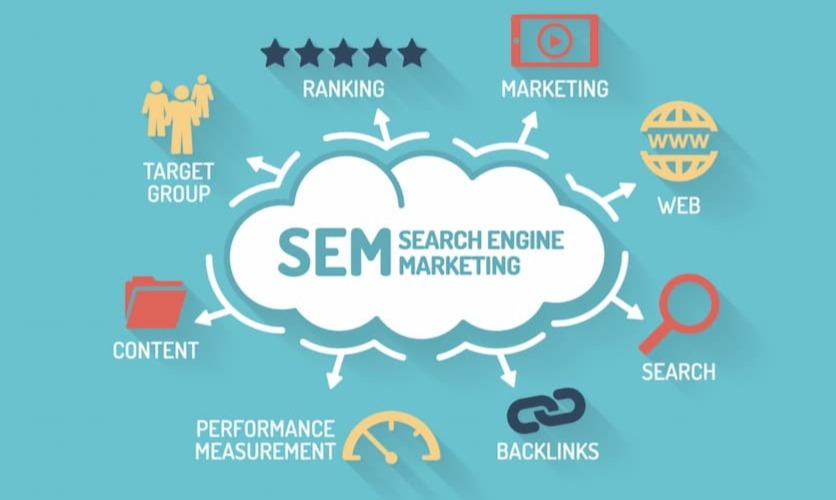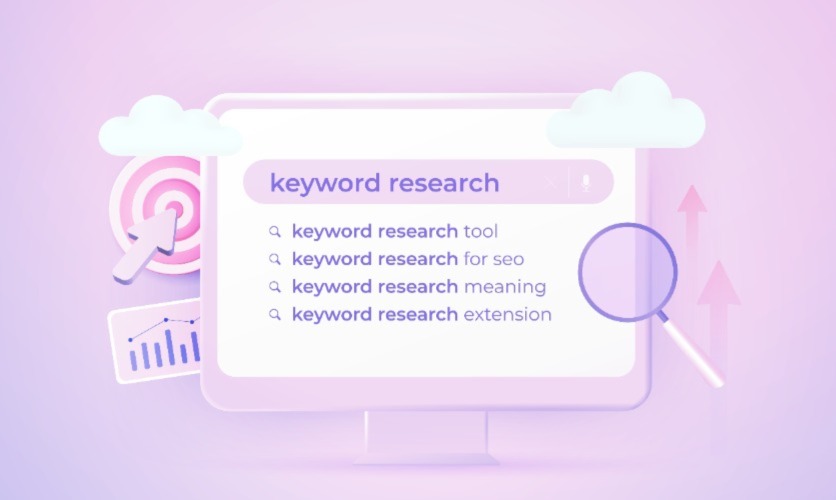May 24, 2023
What is SEM?

If you’ve ever googled a product in hopes that it might solve your specific problem, the first five results on Google were not there by accident. Websites are intentionally designed with keywords, links, and featured ads in order to rank higher on search pages, and to meet your gaze as you search for their product!
SEM, or search engine marketing, is a type of digital marketing that involves promoting websites and online content by increasing their visibility in search engine results.
SEM is typically achieved through paid advertising, like pay-per-click (PPC) ads, which appear at the top of search engine results pages. Ever seen a “featured” link on Google? That’s what we’re talking about here!
SEM vs SEO: What’s the difference?
Both SEM and SEO (search engine optimization) deal with increasing a website’s visibility in search engine results, yet they differ in several important ways. The most important difference to remember is what type of traffic each one drives to your site: paid and unpaid.
SEO focuses specifically on optimizing the content and structure of a site to improve its organic and unpaid search engine rankings. SEM, on the other hand, primarily involves paid advertising to move a website’s link higher up on the results page.
SEM Keyword Research

For any SEM campaign, you’ll need to understand which keywords and phrases your target audience is searching for. Then, you’ll be able to create ads that target those specific words and attract new potential customers! To conduct SEM keyword research, the digital marketing team of your business should complete the following steps:
- Define campaign goals: What are the business objectives? What specific actions do you want users to take on the website? This will help to identify the most relevant and valuable keywords to target.
- Brainstorm potential keywords: Ask yourself about the words you would naturally relate to your business, its products or services, and its target audience. Also, think about what terms customers might use when searching for similar products or services online.
- Use keyword research tools: Tools like Google Keyword Planner, SEMrush, Ahrefs, and Moz can provide valuable insights into search volume, competition, and related keywords. Use these tools to identify additional keywords to target and refine the list of potential keywords.
- Analyze the competition: Checking out competitor websites and identifying the keywords they are targeting can help to create your own list. Use tools like SEMrush or Ahrefs to identify competitor keywords and assess their search engine rankings.
- Refine your keyword list: Based on the research and analysis conducted, refine the list of potential keywords to focus on the most relevant, high-value keywords with the greatest potential for driving qualified traffic and conversions. Consulting an expert could be helpful at this step!
- Monitor and adjust your strategy: Once the SEM campaign is launched, use data and analytics to identify which keywords are driving the most traffic and conversions, and adjust the strategy accordingly to maximize results.
SEM Ad Auction
An SEM Ad Auction provides the opportunity to potentially increase the visibility of your site and drive targeted traffic to your products or services. But what is this “Ad Auction” stuff all about?
How it Works
Every time a user searches for a keyword that matches the terms you’ve chosen to bid on, a real-time auction takes place to determine which ads will be shown on the search engine results page (SERP). The ad auction is based on a number of factors, including bid amount, ad relevance and quality, and the user’s search query.
How To Win

To win the SEM ad auction, businesses can try focusing on two key areas: ad quality and bid strategy. The relevance and quality of your ad are crucial factors in winning the ad auction that happens whenever a potential customer hits the “search” button.
Ads that are highly relevant to the user’s search query, and provide a clear and compelling message and call-to-action, are more likely to be clicked on and drive conversions. Ad quality can be improved by choosing the most relevant and high-value keywords, creating compelling ad copy, and using high-quality, optimized landing pages.
The amount you bid for each keyword is another crucial factor in winning the ad auction. However, bidding the highest amount doesn’t necessarily guarantee success. To develop a winning bid strategy, businesses should focus on setting realistic budgets and bids to prevent overspending, as well as monitoring and adjusting bids to maximize ROI. Monitor the performance of your ads and adjust bids as needed to improve performance to get the most out of your money.
To help your site “win” the auction, focus bids on the keywords that are most likely to drive conversions and deliver the best return on investment. With the right approach and ongoing optimization, SEM can be a powerful tool for growing your business and achieving your marketing goals.
Our team of digital marketing experts is here to help you grow your online presence and to connect you with your target audience. The SEO and SEM strategists at Click Mentality are ready to help optimize your company’s site to get you the search engine traffic you’ve been seeking. Get in touch to learn more about how our digital marketing experts can help your business win SEM ad auctions and more.